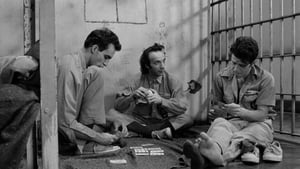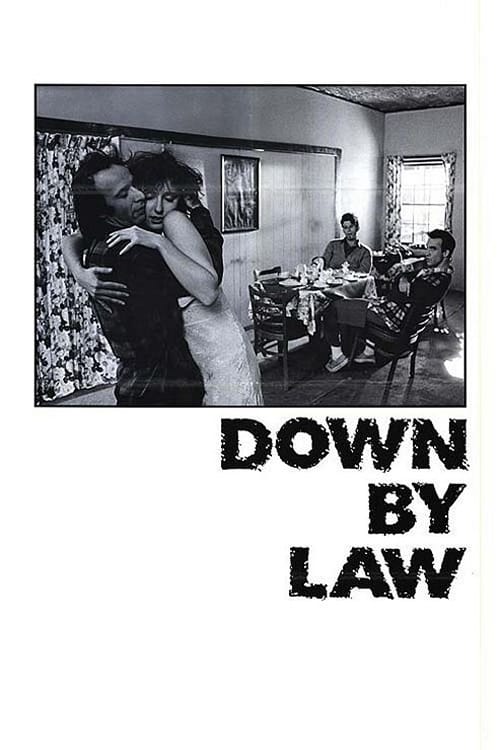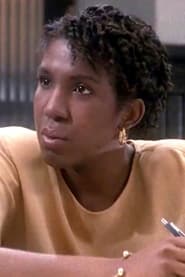Cast
View AllTom Waits
as Zack
John Lurie
as Jack
Roberto Benigni
as Roberto
Nicoletta Braschi
as Nicoletta
Ellen Barkin
as Laurette
Billie Neal
as Bobbie
Rockets Redglare
as Gig
Vernel Bagneris
as Preston
Timothea
as Julie
L.C. Drane
as L.C.
Joy N. Houck Jr.
as Detective Mandino
Carrie Lindsoe
as Young Girl
Ralph Joseph
as Detective
Richard Boes
as Detective
Dave Petitjean
as Cajun Detective
Crew
Director
- Jim Jarmusch
Writer
- Jim Jarmusch
Producer
- Alan Kleinberg
Reviews
talisencrw
Jim Jarmusch's work can be either intimidating or off-putting, and in equal measure, to cinephiles because it feels so relaxed--almost as if it was a spur-of-the-moment, off-the-cuff precursor of reality-TV, an inside-joke with everyone involved slipping a nod and a wink, as if on a drunken dare, a mickey of JD passed back and forth along with a pack of Marlboros. This brought to mind many good memories of one of the oddest residents of The Criterion Collection: 'Fishing with John' (an exemplary and hilarious six-part mini-series in which John Lurie goes on fishing expeditions with five American cinematic greats, his partners-in-crime here, Jarmusch and Tom Waits amongst them; one that I'd love to see both get a blu upgrade as well as more episodes, now 25 years later). Also, clearly Jarmusch had a fine rapport with his actors, for this is by far the best and most restrained work I have ever seen from Roberto Benigni.
One of Jarmusch's more atypical films, 'Ghost Dog: The Way of the Samurai', is still my personal favourite, but this is right up there alongside. It would also make an intriguing double-bill with Jeff Nichols' stellar, though more serious in tone, recent film, 'Mud'.
Sep 23, 2016
Filipe Manuel Neto
**It's not a film for those looking for suspense or action, but it's perfect for those who want a solid film with very well-developed characters.**
Directed and written by Jim Jarmusch, this film was obviously never going to be a suspenseful action drama. The director seems to prefer something more subtle, favoring cinematography, with very good filming angles and framing and the use of good sets. That's precisely what we have in this film, where we follow a man in a bizarre story: he's unemployed, urgently needs some money and accepts a seemingly simple job. However, this work was nothing more than a trap: accused of a crime he never committed, he is arrested and ends up with another wronged man and an Italian, who barely speaks English, but who devises an escape plan where the three decide to cooperate.
The strong point of this film is the development of the characters. The possible crimes they committed and the injustices they experienced are never in question, all of this only serves to place the three of them in that penitentiary cell together. That's where the film really becomes better and more interesting, after a slow introduction, somewhat lengthy, but perhaps necessary. Each of the three main characters has the right to their time and space to develop and to show their character, personality and way of acting. With time and forced coexistence, and the creation of a common escape plan, they create a bond of trust that the film makes convincing and quite credible.
On a technical level, the strong points of this film are the black and white cinematography, the credible sets and costumes, a very well written script and excellent editing. It's a film that doesn't take much time, which we watch quickly in less than two hours. It doesn't have a very notable soundtrack, but it doesn't need it either. It is clear that Jarmusch's direction does a very solid job, despite the certain inexperience that the director still had, which inclines him more towards experimentalism than any kind of obvious insecurity. Tom Waits and John Lurie do an excellent job with their characters and actually manage to respond positively to the challenges they face. However, it is the Italian Roberto Benigni who shines most in the squad. He is currently a highly regarded filmmaker and actor, but at this time he was not well known to the general international public. With a gentle lightness and creativity that characterize him in almost all of his work, the actor dominates every scene in which he appears and it is truly pleasant to see him work here, with his dignified wife, Nicoletta Braschi, who has a smaller role close to the end of the movie.
Nov 16, 2023
Thematic Analysis
As a dramatic work, Down by Law examines complex human relationships and emotional struggles against the backdrop of a period setting that reflects societal issues of its time. The character development particularly stands out, offering viewers a chance to reflect on their own life journeys.
Director Jim Jarmusch brings their distinctive visual style to this film, continuing their exploration of themes seen in their previous works while adding new elements. Their approach to character development and emotional depth creates a viewing experience that rewards close attention.
Released in 1986, the film exists within a cultural context that now offers viewers historical perspective on the social issues of that era. Its critical acclaim reflects its artistic achievements and its place in cinema history.
Did You Know?
- The production of Down by Law took approximately 36 months from pre-production to final cut.
- The final cut of the film runs for 106 minutes, though the director's initial assembly was reportedly 139 minutes long.
- The musical score contains over 33 unique compositions.
- The screenplay went through 11 major revisions before the final shooting script was approved.
- The cast underwent specialized training for 4 weeks before filming began.
Historical Context
- In 1986, when this film was released:
- The Cold War was entering its final phase.
- Personal computers were beginning to transform homes and workplaces.
- Independent cinema was growing in influence, challenging the dominance of major studios.
How This Film Stands Out
While Down by Law shares thematic elements with other films in its genre, it distinguishes itself through its unique approach to storytelling, visual style, and character development.
Unlike Roman Holiday, which takes a more conventional approach to its subject matter, Down by Law subverts genre expectations by exploring its themes with greater nuance.
While films like Rosemary's Baby and Shrek 2 explore similar territory, Down by Law stands apart through its deeper exploration of its central themes and more complex characterization.
This film's unique contribution to cinema lies in its thoughtful balance of entertainment value and thematic depth, making it a valuable addition to its genre.
Details
- Release Date: September 20, 1986
- Runtime: 1h 46m
Where to Watch



















